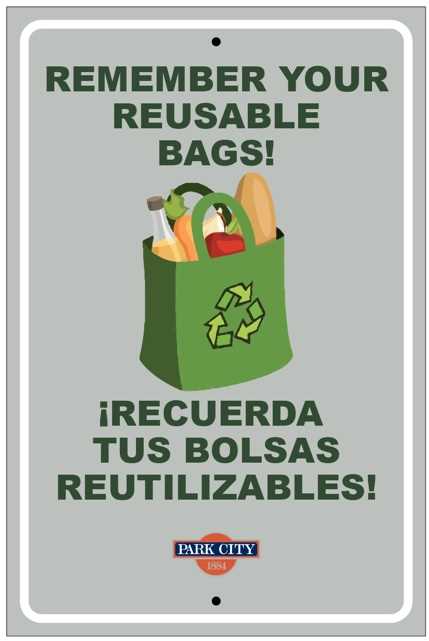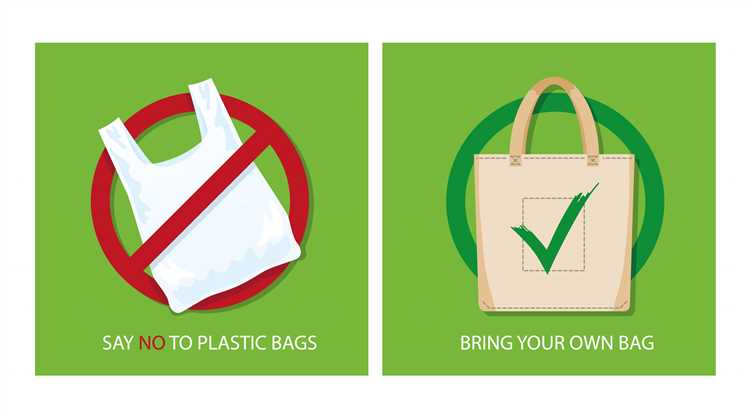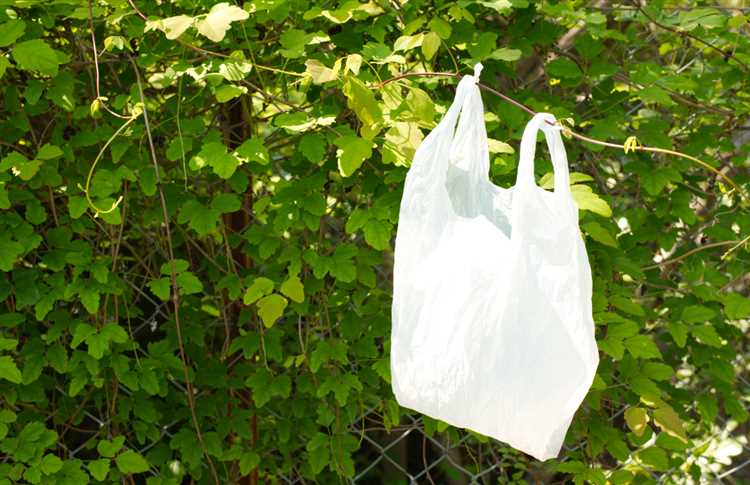
In recent years, there has been a growing concern about the environmental impact of plastic bags. These single-use items are known for their detrimental effects on ecosystems, wildlife, and human health. As a result, many cities and countries around the world have implemented bans or restrictions on the use of plastic bags. While the primary goal of these policies is to reduce plastic waste and promote sustainability, the impact of such measures on urban planning should not be overlooked.
One of the main ways in which the plastic bag ban affects urban planning is through changes in consumer behavior. With the ban in place, individuals are forced to find alternative ways to carry their groceries and everyday items. This has led to a surge in demand for reusable bags, which has created opportunities for businesses to produce and sell environmentally-friendly alternatives. Urban planners must take into account this shift in consumer preferences and ensure that adequate infrastructure is in place to support the use of reusable bags, such as the provision of bagging stations and storage facilities in shopping areas.
Furthermore, the plastic bag ban has also led to changes in waste management practices. Without plastic bags, individuals may resort to using paper bags or packaging, which can increase the volume and weight of waste generated. Urban planners must consider the additional strain this may put on existing waste management systems and develop strategies to accommodate for the increase in waste. This may involve expanding recycling facilities, implementing composting programs, or encouraging the use of biodegradable packaging alternatives.
Another aspect that urban planners must address is the potential impact on the retail industry. Plastic bags have long been a staple in the retail sector, providing a convenient and cost-effective solution for packaging and transporting goods. With the ban in place, retailers may face challenges in finding suitable replacements that are both practical and affordable. Urban planners should work closely with the retail industry to identify and promote sustainable packaging alternatives, while also ensuring that any changes in packaging requirements do not hinder the efficient operation of businesses.
In conclusion, the plastic bag ban has far-reaching implications for urban planning. It requires a comprehensive approach to accommodate changes in consumer behavior, waste management practices, and the retail industry. By carefully considering these factors, urban planners can contribute to the success of the plastic bag ban and create more sustainable and environmentally-friendly cities.
- Plastic Bag Ban: A Game Changer in Urban Planning
- Reduction of Plastic Waste
- Promotion of Sustainable Practices
- Positive Economic Impact
- Challenges and Considerations
- Shifting Perspectives on Waste Management
- Embracing the Circular Economy
- Reducing Plastic Pollution
- Reducing Environmental Impact and Promoting Sustainability
- Reduction of Plastic Waste
- Preservation of Natural Resources
- Transitioning to a New Era: Challenges and Opportunities
- Challenges
- Opportunities
- Adapting Infrastructure and Systems
- Upgrading Waste Management Facilities
- Improving Public Transportation and Commuting Options
- Encouraging Innovation in Packaging Design
- Enhancing Public Awareness and Behavior Change
- Affecting Urban Design and Landscape
- Reimagining Public Spaces and Streetscapes
- Incorporating Green Infrastructure
- Creating Active Transportation Networks
- Question-answer:
- What is the impact of a plastic bag ban on urban planning?
- How does a plastic bag ban affect waste management in urban areas?
- Does a plastic bag ban have any economic benefits for urban planners?
- What are the challenges faced by urban planners in implementing a plastic bag ban?
Plastic Bag Ban: A Game Changer in Urban Planning
The implementation of a plastic bag ban has the potential to be a significant game changer in urban planning. This policy shift not only addresses the immediate environmental concerns related to plastic pollution but also has far-reaching implications for sustainable urban development.
Reduction of Plastic Waste
One of the primary benefits of a plastic bag ban is the reduction of plastic waste. Plastic bags are a major source of pollution, often found littered in urban areas and water bodies. By eliminating the use of single-use plastic bags, cities can significantly decrease the amount of plastic waste generated, leading to cleaner and more visually appealing urban environments.
Promotion of Sustainable Practices
A plastic bag ban promotes the use of alternative, more sustainable options such as reusable bags or paper bags. This shift towards sustainable practices encourages individuals to be more conscious of their consumption patterns and take responsibility for their environmental impact. Additionally, promoting the use of reusable bags can stimulate the local economy by supporting local businesses that produce such alternatives.
Positive Economic ImpactImplementing a plastic bag ban can have positive economic implications for urban areas. It can create opportunities for the development of new businesses centered around sustainable packaging and alternative bag options. Additionally, it can also save municipalities money spent on waste management and cleaning up plastic bag litter. The resources saved can be redirected towards other urban development projects, improving the overall quality of life for residents. |
Challenges and ConsiderationsWhile the benefits of a plastic bag ban are plentiful, there are also challenges and considerations that urban planners must address. One common concern is the potential increase in the use of other forms of single-use packaging, such as plastic film or paper bags. It is essential to implement comprehensive regulations to ensure that alternative options are also environment-friendly and have minimal negative impact. |
Shifting Perspectives on Waste Management
In recent years, there has been a significant shift in perspectives on waste management, particularly in relation to single-use plastics such as plastic bags. Traditionally, waste management focused primarily on disposal methods, such as landfilling or incineration. However, there is now a growing recognition that prevention and reduction of waste should be prioritized to achieve more sustainable and environmentally-friendly practices.
Embracing the Circular Economy
One of the key drivers behind this shift in perspective is the adoption of the circular economy concept. The circular economy aims to minimize waste and maximize the use of resources by designing products that can be easily recycled or reused. This approach challenges the traditional linear model of “take-make-dispose” and encourages a more holistic and sustainable approach to production and consumption.
Reducing Plastic Pollution
Plastic pollution, particularly from single-use plastics like plastic bags, has become a major environmental concern. These items often end up in landfills, oceans, and waterways, causing harm to wildlife and ecosystems. As a result, there has been a growing push to reduce plastic waste through initiatives such as plastic bag bans. By shifting away from single-use plastics and towards reusable alternatives, communities can significantly reduce their contribution to plastic pollution and promote a cleaner and healthier environment.
Furthermore, by implementing waste management strategies that prioritize recycling and composting, communities can further reduce their reliance on landfilling or incineration. This not only helps to conserve valuable resources but also reduces greenhouse gas emissions associated with these disposal methods.
- Education and Awareness Campaigns
- Improved Recycling Infrastructure
- Promoting Reusable Alternatives
- Encouraging Sustainable Consumption Patterns
Overall, the shifting perspectives on waste management, particularly in relation to single-use plastics, have led to a greater emphasis on prevention and reduction. By embracing the circular economy concept, reducing plastic pollution, and implementing effective waste management strategies, urban planning can play a pivotal role in creating more sustainable and environmentally-friendly communities.
Reducing Environmental Impact and Promoting Sustainability
The implementation of a plastic bag ban in urban planning can have a significant impact on reducing environmental harm and promoting sustainability. By eliminating the use of plastic bags, cities can effectively reduce the amount of plastic waste produced and reduce the negative effects of plastic pollution on the environment.
Reduction of Plastic Waste
Plastic bags are a major contributor to the global plastic waste problem. They are often used for a short period of time and then discarded, ending up in landfills or polluting natural environments such as rivers and oceans. By banning plastic bags, cities can drastically reduce the amount of plastic waste generated and improve waste management processes.
With the ban in place, residents and businesses are encouraged to adopt more sustainable alternatives, such as reusable bags made from eco-friendly materials like cotton or jute. These alternatives are not only more durable but also biodegradable, reducing the long-term impact on the environment.
Preservation of Natural Resources
The production of plastic bags contributes to the depletion of natural resources such as crude oil and natural gas. By reducing the demand for plastic bags, cities can help preserve these finite resources and promote a more sustainable use of energy.
Furthermore, the ban on plastic bags can also encourage the development and use of alternative packaging materials that are more environmentally friendly. This can include the promotion of biodegradable or compostable bags made from plant-based materials, which have a lower environmental impact throughout their lifecycle.
| Benefits of a Plastic Bag Ban |
|---|
| Reduction of plastic waste |
| Preservation of natural resources |
| Promotion of sustainable alternatives |
| Improved waste management processes |
| Less pollution in natural environments |
Overall, the implementation of a plastic bag ban in urban planning not only helps reduce the environmental impact of plastic waste but also promotes sustainable practices and encourages a shift towards a more eco-friendly and responsible society. It is an important step towards creating a healthier and more sustainable future for our cities and the planet as a whole.
Transitioning to a New Era: Challenges and Opportunities
As cities around the world implement bans on plastic bags, the transition to a plastic-free era presents both challenges and opportunities for urban planning.
Challenges
- Behavioral Change: Encouraging individuals to adopt sustainable alternatives to plastic bags can be a challenge. It requires education and outreach campaigns to ensure widespread acceptance and understanding of the environmental consequences of plastic bag usage.
- Infrastructure Transition: Implementing a ban on plastic bags requires updating existing waste management systems and infrastructure. The collection and disposal of reusable bags may require additional resources and coordination.
- Economic Impact: Many industries rely on plastic bag production and distribution, and a ban may have adverse effects on these businesses and their employees. Finding alternative economic opportunities and supporting affected communities is crucial.
Opportunities
- Environmental Benefits: The ban on plastic bags provides an excellent opportunity to reduce plastic waste, which has significant environmental impacts. By encouraging the use of reusable bags, cities can contribute to minimizing pollution and protecting ecosystems.
- Public Health: Plastic bags can have harmful effects on human health, such as the release of toxic chemicals. Transitioning to alternative bag options can improve public health outcomes by reducing exposure to these hazards.
- Innovation and Creativity: The plastic bag ban opens doors for innovation in materials science and urban design. The development of sustainable and durable bag options, along with creative public space designs that accommodate bag storage, can drive progress in urban planning.
In conclusion, the transition to a plastic-free era poses challenges in terms of behavioral change, infrastructure transition, and economic impact. However, it also presents opportunities for environmental benefits, improved public health, and innovation in urban planning. By addressing these challenges and seizing these opportunities, cities can successfully navigate the transition and create more sustainable and livable urban environments.
Adapting Infrastructure and Systems
With the implementation of a plastic bag ban, cities and urban planning authorities must adapt their infrastructure and systems to accommodate the shift towards alternative bag options and reduce plastic waste.
Upgrading Waste Management Facilities

One key aspect of adapting infrastructure is upgrading waste management facilities to efficiently handle the increased volume of recyclable bags and other alternative packaging materials. This may involve investing in new sorting and processing equipment, as well as expanding recycling capacity.
Additionally, cities may need to implement educational campaigns to educate residents on proper recycling practices for alternative bags and packaging materials. This could include providing information on which types of bags are recyclable and how to properly clean and prepare them for recycling.
Improving Public Transportation and Commuting Options
Another important aspect of adapting infrastructure is improving public transportation and commuting options to reduce the need for single-use bags altogether. By investing in efficient and accessible public transportation systems, cities can encourage residents to rely less on personal vehicles and instead use reusable bags to carry their belongings.
Cities may also consider implementing bike-sharing programs and pedestrian-friendly infrastructure to further reduce the reliance on plastic bags. This could include installing bike lanes, creating safe pedestrian walkways, and providing convenient storage options for bicycles and personal belongings.
Moreover, urban planning authorities can work with businesses and retailers to establish secure and convenient storage areas for reusable bags at stores, cafes, and other public spaces. This can encourage residents to carry their own bags and eliminate the need for disposable plastic alternatives.
Encouraging Innovation in Packaging Design

Lastly, adapting infrastructure and systems involves encouraging innovation in packaging design to reduce the overall demand for bags, both plastic and alternative options. Cities and urban planning authorities can partner with businesses and entrepreneurs to promote the development of eco-friendly packaging materials that are easily recyclable or biodegradable.
This could include supporting research and development in sustainable materials, providing incentives for businesses to adopt these materials, and working with manufacturers to ensure the availability and affordability of eco-friendly packaging options.
By adapting infrastructure and systems to support the plastic bag ban, cities can not only reduce plastic waste but also create sustainable and environmentally friendly urban environments.
Enhancing Public Awareness and Behavior Change
Encouraging individuals to reduce their use of plastic bags requires a multifaceted approach that combines education, outreach programs, and campaigns aimed at changing behavior. By increasing public awareness about the negative impact of plastic bags on the environment and offering sustainable alternatives, urban planners can create a culture of conscious consumption and waste reduction.
One effective strategy is to collaborate with schools, community centers, and local organizations to implement educational initiatives. These programs can include workshops, presentations, and hands-on activities that teach individuals about the environmental consequences of plastic bag usage. By targeting various age groups, from school children to adults, these initiatives can instill a sense of responsibility and stimulate behavior change.
Additionally, public awareness campaigns can play a crucial role in promoting sustainable practices and reducing plastic bag consumption. These campaigns can utilize various media channels, including social media, television, radio, and print, to reach a wide audience. Messages should emphasize the harmful effects of plastic bags on wildlife, waterways, and ecosystems, as well as the benefits of using reusable alternatives such as cloth or tote bags.
It is essential to make the switch to reusable bags as easy and convenient as possible for individuals. Urban planners can support this by collaborating with local retailers to promote the use of reusable bags through discounts, incentives, or free distribution. By making reusable bags readily available and affordable, it becomes more convenient for individuals to adopt sustainable habits.
Moreover, urban planners can leverage technology to enhance public awareness and behavior change. Mobile applications, for example, can provide users with information on nearby retailers that offer reusable bags, as well as tips and reminders to bring their own bags while shopping. These digital tools can also track and highlight individual’s progress in reducing plastic bag usage, motivating them to continue their efforts.
By combining these approaches, urban planners can empower communities to make conscious choices and contribute to the reduction of plastic bag waste. By enhancing public awareness and promoting behavior change, the impact of plastic bag bans on urban planning can be maximized, leading to a more environmentally sustainable future.
Affecting Urban Design and Landscape
The ban on plastic bags has had a significant impact on the field of urban design and landscape architecture. With plastic bags being a ubiquitous part of urban life, their absence has forced urban planners and designers to rethink their approach to creating efficient and sustainable cities.
One of the major challenges that urban designers face is finding alternative methods for waste management. With the ban on plastic bags, cities have had to implement new systems for collecting and disposing of waste. This has led to innovative solutions such as the introduction of recycling programs and the use of biodegradable bags.
The ban has also affected the aesthetics of urban spaces. Without the presence of plastic bags littering the streets and public spaces, cities have experienced a significant improvement in their overall appearance. The absence of this eyesore has allowed urban designers to focus on creating visually appealing environments that enhance the quality of life for residents.
In addition to enhancing the visual appeal of cities, the ban on plastic bags has also influenced the design of public spaces. With the reduced use of plastic bags, urban planners have been able to create more pedestrian-friendly environments. Sidewalks and walkways are now cleaner and more accessible, making it easier for people to navigate their cities on foot.
Furthermore, the ban on plastic bags has provided an opportunity to incorporate more sustainable materials into urban design and landscape architecture. Designers are now exploring options such as using recycled materials for street furniture and incorporating green infrastructure into city planning. These advancements not only promote environmental sustainability but also contribute to the overall well-being of urban communities.
In conclusion, the ban on plastic bags has had a profound effect on urban design and landscape architecture. It has forced urban planners and designers to find alternative waste management solutions, enhance the visual appeal of cities, create pedestrian-friendly environments, and promote sustainable practices. The absence of plastic bags has paved the way for a more thoughtful and eco-conscious approach to urban planning and design.
Reimagining Public Spaces and Streetscapes
The implementation of a plastic bag ban has the potential to transform urban planning and design by providing an opportunity to reimagine public spaces and streetscapes. With the elimination of plastic bags, cities have the chance to create more vibrant, sustainable, and pedestrian-friendly environments.
Incorporating Green Infrastructure
By banning plastic bags, urban planners and designers can explore innovative ways to incorporate green infrastructure into the public spaces and streetscapes. This could include the introduction of more trees, plants, and urban gardens to provide shade, improve air quality, and reduce the urban heat island effect. Furthermore, the incorporation of rain gardens, bioswales, and permeable pavement can help manage stormwater runoff and prevent pollution from entering water sources.
Creating Active Transportation Networks
The elimination of plastic bags can also encourage the development of active transportation networks within cities. With fewer plastic bags littering the streets, pedestrians and cyclists can have an improved experience navigating through the urban landscape. This could involve the creation of wider sidewalks, dedicated cycling lanes, and pedestrian-friendly crossings, ultimately promoting healthier and more sustainable modes of transportation.
| Benefits of Reimagining Public Spaces and Streetscapes |
|---|
| Enhanced walkability and accessibility |
| Improved air quality and aesthetics |
| Reduced stormwater runoff and water pollution |
| Promotion of active transportation and healthier lifestyles |
In conclusion, the ban on plastic bags presents a unique opportunity for urban planners and designers to reimagine public spaces and streetscapes. By incorporating green infrastructure and creating active transportation networks, cities can become more sustainable, aesthetically pleasing, and pedestrian-friendly environments.
Question-answer:
What is the impact of a plastic bag ban on urban planning?
The impact of a plastic bag ban on urban planning can be significant. It reduces the consumption and production of single-use plastic bags, resulting in less waste and pollution in cities.
How does a plastic bag ban affect waste management in urban areas?
A plastic bag ban can have a positive effect on waste management in urban areas. With fewer plastic bags in circulation, the amount of plastic waste generated is reduced, making it easier for waste management systems to handle and dispose of the remaining waste in a more sustainable manner.
Does a plastic bag ban have any economic benefits for urban planners?
Yes, a plastic bag ban can have economic benefits for urban planners. It can lead to the development of local industries for producing alternative bags or packaging materials, creating job opportunities and stimulating economic growth in the region.
What are the challenges faced by urban planners in implementing a plastic bag ban?
Implementing a plastic bag ban can pose several challenges for urban planners. One of the main challenges is resistance from businesses and consumers who are accustomed to using plastic bags. Another challenge is ensuring the availability of affordable and accessible alternatives to plastic bags to ensure a smooth transition for consumers.
